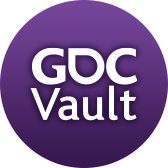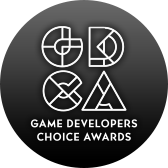When you're an independent game developer, you often don't have the luxury of just sticking to your art and craft, you have to go out and build a business for yourself as well. It's an experience a lot of developers can relate to, but at GDC 2018, you're going to hear from speakers like Tanya X. Short, who not only makes games at her company Kitfox Games, but helped co-found Pixelles, a non-profit dedicated to helping women make games in Montreal!
To get a sense for what Short will be talking about at GDC, we reached out to her for a quick Q&A about what it's like being an indie with an interest in procedural game design and running her own company. You can read all of her answers below!
Don't miss out! The Game Developers Conference in San Francisco next March is going to be full of interesting and informative sessions like Short's. For more visit the show’s official website.
Tell us about yourself and what you do in the games industry.
I've tried out a lot of different personality traits and identities, but I'm starting to crystallize, I think. I know for sure that I'm a game designer, for example. That's probably the biggest fragment. But I'm too excitable, so... also I act as the leader of Kitfox Games, an indie studio, and I write for Gamasutra sometimes (I used to more often, I should get back to doing that). I also co-founded Pixelles, a women-in-games non-profit here in Montreal. Oh, and I was co-editor of Procedural Generation in Game Design, a textbook that came out last year. Overall, I believe in the power of art and culture, and wish more people knew what their personal values are. So that's what I try to reflect in the industry, where I'm visible.
What inspired you to pursue your career?
At first, I was just games-obsessed. I played thousands of hours of MUDs (text-based MMOs) in college, and meanwhile ran an amateur games-review blog (this was in the days before YouTube, you understand), mostly so I could spend all of my time outside of class thinking about and talking about games. Then two things happened in 2002: I started volunteering to create MUD content as a designer/writer, and I email-interviewed Chris Avellone (one of my all-time favorite game writers) for my blog. The two connected in my brain as a potential career. Between the kind, approachable spirit that Chris showed me, and the newfound creative outlet I had in building MUD rooms and monsters, I started to understand the game industry might feel like home to me. So I started to make a plan for breaking in, despite the fact I was about to graduate with an English Literature degree. Then I went to my first GDC in 2003 on a journalist pass I got through my blog (I don't think they were checking visitor-counts on journalist websites that year) and fell in love with literally every game design session I attended, which set my heart on a very clear path.
Without spoiling it too much, tell us what you’ll be talking about at GDC.
I guess my excitability has gotten me into trouble again this year, as I'm involved in 4 GDC talks in 2018... 1 game design, 1 business, 1 indie game summit, and I'm organizing (but hopefully not speaking in) an AI summit panel. And GDC hasn't scheduled its sessions yet so it's pretty stressful. Can you ask them to schedule those soon please? It'd help me sleep better. (Editor's note: They're scheduled!) The only one that's been even announced on the website is "Writing Modular Characters for System-Driven Games", but I'll mostly be connecting work done by Emily Short (Versu, SpiritAI) and Jason Grinblat (Caves of Qud), who are both brilliant, by the way. If you're reading this, please only come to the talk if you promise to applaud at the end even if you hate it -- no booing, please. If you can't resist booing, just wait for it to go up on YouTube, they have whole systems to support that kind of thing. I don't mind. Thumbs-down used to kill people back in ancient Rome (Hollywood's ancient Rome anyway), so I'm okay with the thumbs-down today just being a little rude. I can handle it. I've never been boo-ed in real life though, so I'm not sure if I can handle that. I probably wouldn't die, but we just don't know.
What are some of the biggest challenges you face in your work?
Games are impossible to make. Every game is an unsolved problem with new technology and unknown hazards and THEN you add the variability of entertainment or capitalism or whatever you want to call "sometimes good games don't make enough money so you can eat", and basically I'm amazed any game is ever finished. At least by humans. Humans just shut down when they're under too much stress. It's a real problem with their design. It seems like if I could just employ some kind of organism that didn't need food or housing, it'd be much easier to run Kitfox and just focus on the game design. Instead, there's salaries and rent and internet bills and... okay so salaries is about 90% of the problem, but coffee beans aren't free either, you know. My ideal employee organism also wouldn't need coffee.
What are the most rewarding parts of your job?
Well, okay, I have to admit that it's pretty great to work with the humans at Kitfox, and I don't actually wish they were replaced by game-making organisms. I look forward to going into work most mornings, because my team is so kind and funny and chill. Xin Ran Liu, the Kitfox art director, is one of the best humans, and Jongwoo Kim is my other cofounder, and he's brilliant and inspiring. In fact, everyone in the office is so chill, I guess they're not that stressed, from what I can tell. I'm just projecting my own stress onto them, probably. I'll tell you something that surprised me -- I thought releasing games would be rewarding. And it sort of is, but mostly it's depressing and awful, because that's the moment when you really have to accept any disappointments or compromises or mistakes that were made in the game's development. Even if it's a giant success (or maybe especially), releasing games is emotionally traumatic. I just have to keep telling myself the next one will be better. The next one will be better.
Do you have any advice for those aspiring to join your field someday?
Learn programming. You don't have to be amazing -- you don't have to be "A Real Programmer." But learn programming. Even if it's just in Gamemaker or Construct. If you try to game design without any connection to the way games work, it's like trying to be a chef without ever touching a knife. Get in there. Make a mess. Constraints are fun. And this is probably self-serving, but be excitable. If you're the kind of person that gets fascinated by different things -- the kind of person who falls down wikipedia holes and can't stop picking up new obsessions -- you'll probably have a good time and end up with the kind of energy that a team starts to depend on and can't resist collaborating with.
As a designer, what makes you passionate about working with procedurally generated content (like what you see in so many Kitfox games?)
There's a lot of reasons to play with procedural content -- it's fun and unique and cutting-edge, but... it's mostly about my sanity, really. See, I love to play authored games. My top 3 games of 2017 had virtually no procedural content. But... you know how I'm amazed any game is ever finished? Part of the problem with making authored games is that the magic gets completely and totally lost. You see the same scene played out a thousand times until you want to vomit. You playtest the same line of voice acting until you have nightmares about it. But with procedural content, the magic sticks around a little longer because it doesn't become a particular calcified artifact -- after awhile the systems become overly familiar and stale of course, and you still have to be on guard against blind spots, but never to the same horrifyingly tedious degree as authored content. You can enjoy the creation process much more when the game can still surprise you.
A lot of developers are reluctant to take up the mantle of “business person” in their work, what advice do you have to make them less terrified of that aspect of game development?
When I was growing up, I hated eating and sleeping. Eating and sleeping are so much effort; you have to do it ALL THE TIME; they're boring; they're not Important Work. But they're also essential to not only surviving, but to help me work well. And the same mindset applies to business -- we're operating under capitalism, so someone's gotta make sure everyone gets paid. Making deals with publishers or filling out tax forms or projecting revenue from sales are all boring and distracting and it's all exhausting, but it also makes sure that my team and I can do excellent work and be happy in our lives, so... I do it, and you can too. Just like eating and sleeping. Do it to survive, and also to be healthy. (Actually I love sleeping, and I grew up to later enjoy cooking, but it's a good metaphor, and besides, one of my boyfriends when I was young was an anti-sleep person, so I get it.) It's OK to be scared of it but if you just try to make sure there's as much money coming in as there is being spent, 6 months at a time, you'll probably be fine. Good luck!
GDC 2018 will take place March 19-23rd at the Moscone Center in San Francisco. For more information, visit the show's official website, or subscribe to regular updates via Facebook, Twitter, or RSS.



